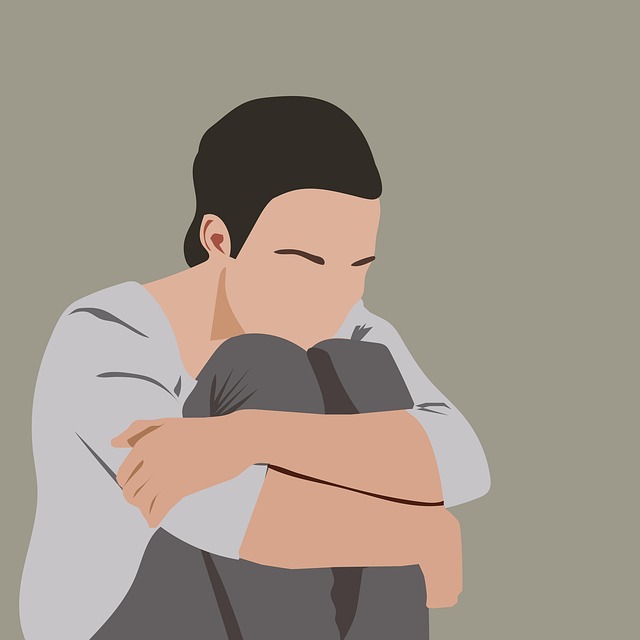Mental wellness is a holistic approach that integrates emotional, psychological, and social well-being. Individuals are encouraged to practice self-care tailored to their unique needs, such as hobbies, nature connection, mindfulness, or seeking professional help like Parker Anger Management Therapy (PAMT). PAMT offers evidence-based tools for managing anger, improving emotional regulation, reducing stress, and enhancing mental health. Workshops focused on stress management and crisis intervention further equip individuals with coping mechanisms. Recognizing personal stressors and triggers is key to building a robust self-care routine. By learning to navigate triggers and develop healthy coping strategies, individuals can prevent mental health conditions from escalating. Personalized self-care routines incorporating mindfulness, physical exercises, and structured activities like therapy promote overall well-being. Integrating daily self-care practices, including meditation, exercise, and quality sleep, enhances resilience against stress, anxiety, and depression, fostering long-term mental wellness.
Developing a robust mental wellness self-care routine is essential for navigating life’s challenges. In this article, we explore strategies to enhance your mental well-being through understanding key concepts, identifying personal stressors with Parker Anger Management Therapy, and crafting tailored self-care practices. Discover how integrating these routines into daily life fosters resilience and promotes long-term mental health. Learn practical steps to embrace a balanced, fulfilling life.
- Understanding Mental Wellness and Self-Care
- Identifying Personal Stressors and Triggers with Parker Anger Management Therapy
- Crafting a Personalized Self-Care Routine
- Integrating Self-Care into Daily Life for Long-Term Mental Wellbeing
Understanding Mental Wellness and Self-Care

Mental wellness is a holistic concept encompassing our emotional, psychological, and social well-being. It’s about recognizing and valuing our unique experiences, thoughts, and feelings, and taking proactive steps to maintain balance. Self-care, an integral part of mental wellness, involves intentional activities that nurture and support our overall health. This can range from engaging in hobbies, connecting with nature, practicing mindfulness, to seeking professional help when needed.
At the core of fostering healthy mental wellness lies the understanding that each individual has distinct needs. For many, incorporating strategies such as those offered by Parker Anger Management Therapy can be transformative. These therapies provide valuable tools for managing anger and improving emotional regulation, which are crucial aspects of stress reduction and overall mental health. Additionally, participating in workshops focused on stress management or crisis intervention guidance offered by organizations dedicated to emotional well-being can equip individuals with effective coping mechanisms.
Identifying Personal Stressors and Triggers with Parker Anger Management Therapy

Identifying Personal Stressors and Triggers is a pivotal step in cultivating a robust mental wellness self-care routine, and Parker Anger Management Therapy offers an effective framework for this process. This therapeutic approach encourages individuals to explore and understand their unique emotional responses, particularly in high-pressure situations. By delving into past experiences and current stressors, one can uncover the triggers that set off feelings of anger or anxiety, which are often interconnected with broader mental health concerns.
Through interactive sessions and evidence-based techniques, Parker Anger Management Therapy equips individuals with valuable skills to navigate these triggers successfully. This involves learning to recognize early warning signs of stress, developing healthy coping mechanisms, and fostering better emotional regulation. By mastering these tools, individuals can proactively manage their mental wellness, preventing the escalation of stressors into debilitating conditions that impact daily life and overall well-being, thereby promoting a more balanced and fulfilling existence.
Crafting a Personalized Self-Care Routine

Crafting a personalized self-care routine is an essential aspect of maintaining mental wellness. It’s about understanding your unique needs and incorporating activities that nurture your mind, body, and soul. This process involves introspection to identify triggers, stress factors, and coping mechanisms that work best for you. For instance, individuals dealing with anger management issues, as addressed in Parker Anger Management Therapy, might include mindfulness practices or physical exercises in their routine to help regulate emotions effectively.
A tailored self-care plan can range from simple yet powerful practices like dedicated time for hobbies, connecting with nature, or practicing gratitude to more structured activities such as therapy sessions, support groups, or engaging in creative outlets. The key lies in recognizing that mental wellness is a journey and adapting your routine accordingly. By incorporating strategies that combat the Mental Illness Stigma Reduction Efforts, managing risks through effective Risk Management Planning for Mental Health Professionals, and accessing Trauma Support Services when needed, you can create a sustainable self-care practice that enhances overall well-being.
Integrating Self-Care into Daily Life for Long-Term Mental Wellbeing

Integrating self-care into daily life is a cornerstone for maintaining long-term mental wellness. It’s not just about occasional spa days or moments of relaxation; it involves cultivating sustainable habits that nurture your mind, body, and spirit. For many, incorporating practices like mindfulness meditation, regular physical activity, and quality sleep can significantly enhance resilience against stress, anxiety, and depression. These foundational behaviors create a buffer against life’s challenges, fostering better emotional regulation and overall well-being.
Mental health professionals, including those offering Parker Anger Management Therapy, emphasize the importance of self-care not just for individuals but also for their own practice’s longevity. Implementing effective risk management planning, incorporating crisis intervention guidance into sessions, and developing empathy building strategies necessitate a balanced approach that includes personal self-care. This ensures they remain equipped to support clients with compassion and effectiveness, recognizing that their own mental wellness directly impacts the quality of care they provide.
Developing a robust mental wellness self-care routine, tailored through methods like Parker Anger Management Therapy, is a transformative journey. By identifying and managing personal stressors, one can cultivate resilience and enhance overall mental wellbeing. Integrating self-care practices into daily life encourages a sustainable, healthy equilibrium, enabling individuals to navigate life’s challenges with greater ease and clarity. This personalized approach is key to fostering long-term mental health and vitality.














